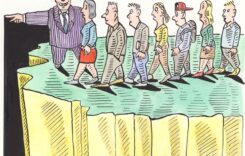While the devastation caused Covid-19 is there to see in facts and figures, experts say another menace, in the form of mental health issues, is silently wreaking havoc on both patients and those close to them.
Harare-based psychiatrist Anesu Isabel Chinoperekwei said patients often find it hard to come to terms with a positive diagnosis, with some going into depresssion.
“Some of the patients undergo denial,” Chinoperekwei told ZimFact. “Some try to hide their symptoms and in due course spread the disease to other people. Apart from denial, there is anxiety – inability to sleep, worry about whether one is going to survive or die, restlessness, agitation as well as irritability.”
“Some people may actually go into severe depression. That is persistently low mood, diminished interest and diminished pleasure.”
The depressed people, she said, end up abusing drugs and substances while, in extreme cases, some take their own lives.
She said the media frenzy since the onset of the pandemic has made matters worse.
“This has been particularly magnified by the delta variant which is causing a lot of panic,” Chinoperekwei said.
“When patients recover, they may face difficulty re-integrating into society because of the stigma attached to COVID-19 and this adds to more mental health challenges.
“To relatives, colleagues and members of the community the experience of seeing a friend or relative undergoing illness may push them into mental health disorders such as obsessive compulsive disorder (OCD) where there is excessive handwashing for fear of contamination. There is also worry for surfaces or places which carry a risk of potential infection.
“Some may experience anxiety disorder thinking it could be them next. Spouses undergo depression as they anticipate the loss of life of their partner.”
She said when a person dies of COVID-19, there is usually lack of closure because they don’t get the opportunity to properly mourn due to regulations imposed by authorities to curb the spread of the disease.
“For those who go on to lose their relative, there is lack of closure because the traditional mourning ritual has been disrupted,” Chinoperekwei said. “Some may not be able to mourn because of the limited number of people allowed to attend funerals. Body viewing which helps to move on and accept the reality of death is no longer being done.”
She said the sudden loss of a parent and loss of financial support as well the complicated grief can develop into depression for children of the deceased.
“All these result in a huge burden. Many are failing to cope and are developing mental health problems,” Chinoperekwei said.
“Even those who are not afraid are still affected by the disruption of their lifestyle. For example those who earned a living as vendors can no longer vend. Also there is limited interaction. All these are stressors that people have to deal with. Those with pre-existing mental health issues get worse.
She said while there are facilities to support healthcare workers who are having to witness the suffering and death of patients, not everyone can access the services.
“There is need to spread even to rural areas,” Chinoperekwei said. “There is need to create awareness programmes to assist people.”
She said while there are on-line programmes to assist patients and those close to them, few can access the because of prohibitive costs of data.
“The media can take a stand and spread messages of hope. Most messages border on spreading fear. There is need to balance the somber news with messages of hope,” Chinoperekwei.
Dr Norman Matara of Zimbabwe Association of Doctors for Human Rights said: “At the moment we are still researching to find out what can be done to mitigate the impact of COVID-19 on mental health.
“Theoretically, we know that there are mental health issues associated with COVID-19. Losing a relative or even a friend and having someone close to you getting sick comes with a lot of stress.
“Some people have lost jobs and sources of income. That comes with stress. We haven’t quantified the extent of the problem but definitely there are mental health issues associated with the COVID-19 pandemic.
“Unfortunately in this country, we don’t have many institutions dealing with that and that poses a huge challenge. We urge people to seek help from family and community if they think they have mental health issues. Just talking to people helps.”
While there were no figures of health facilities that offer mental healthcare to COVID-19 patients and those close to them, health ministry public relations officer Donald Mujiri told ZimFact: “All healthcare facilities offer mental health services. We do not have specific COVID mental health services.”
Do you want to use our content? Click Here












